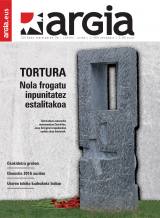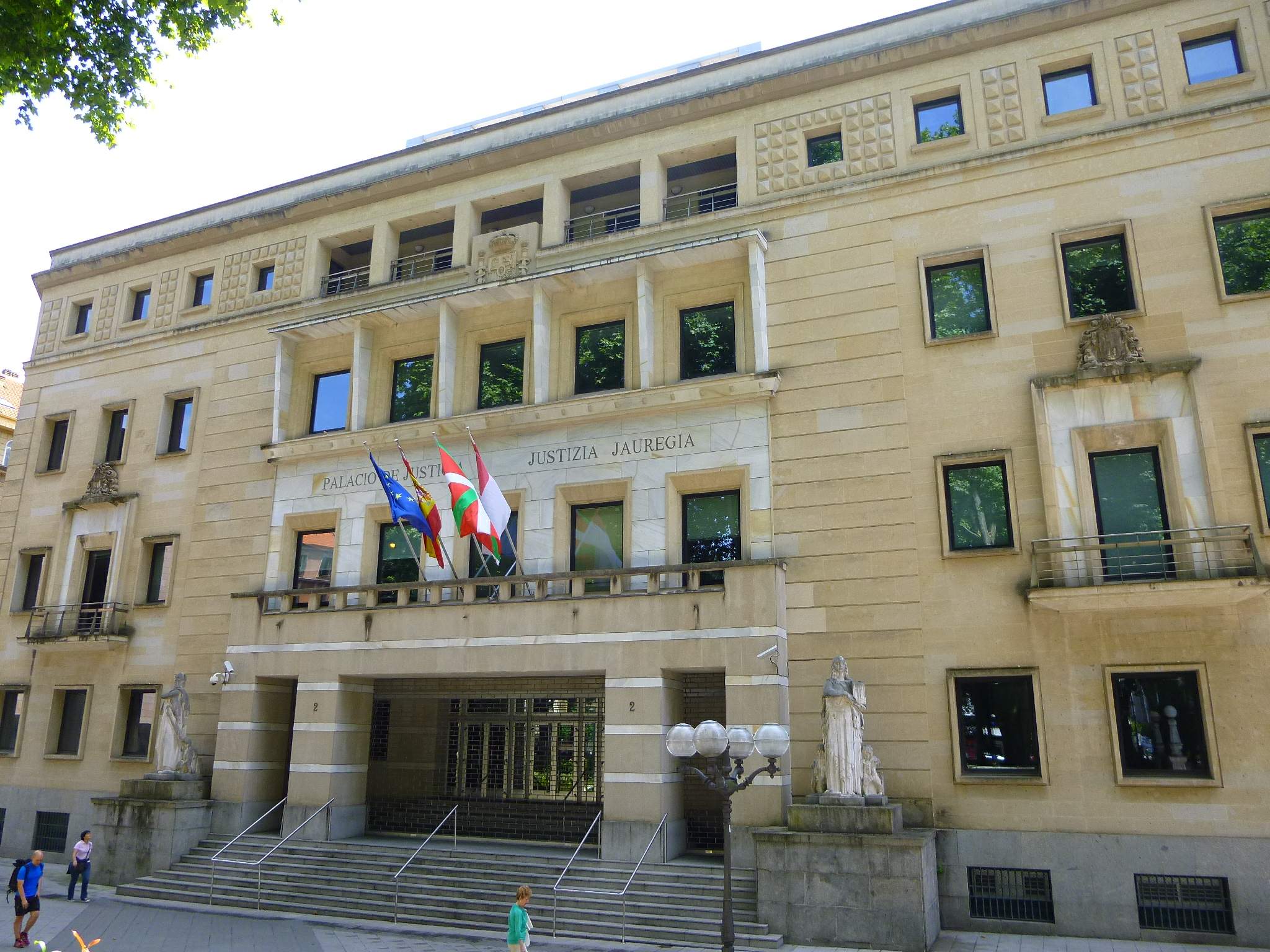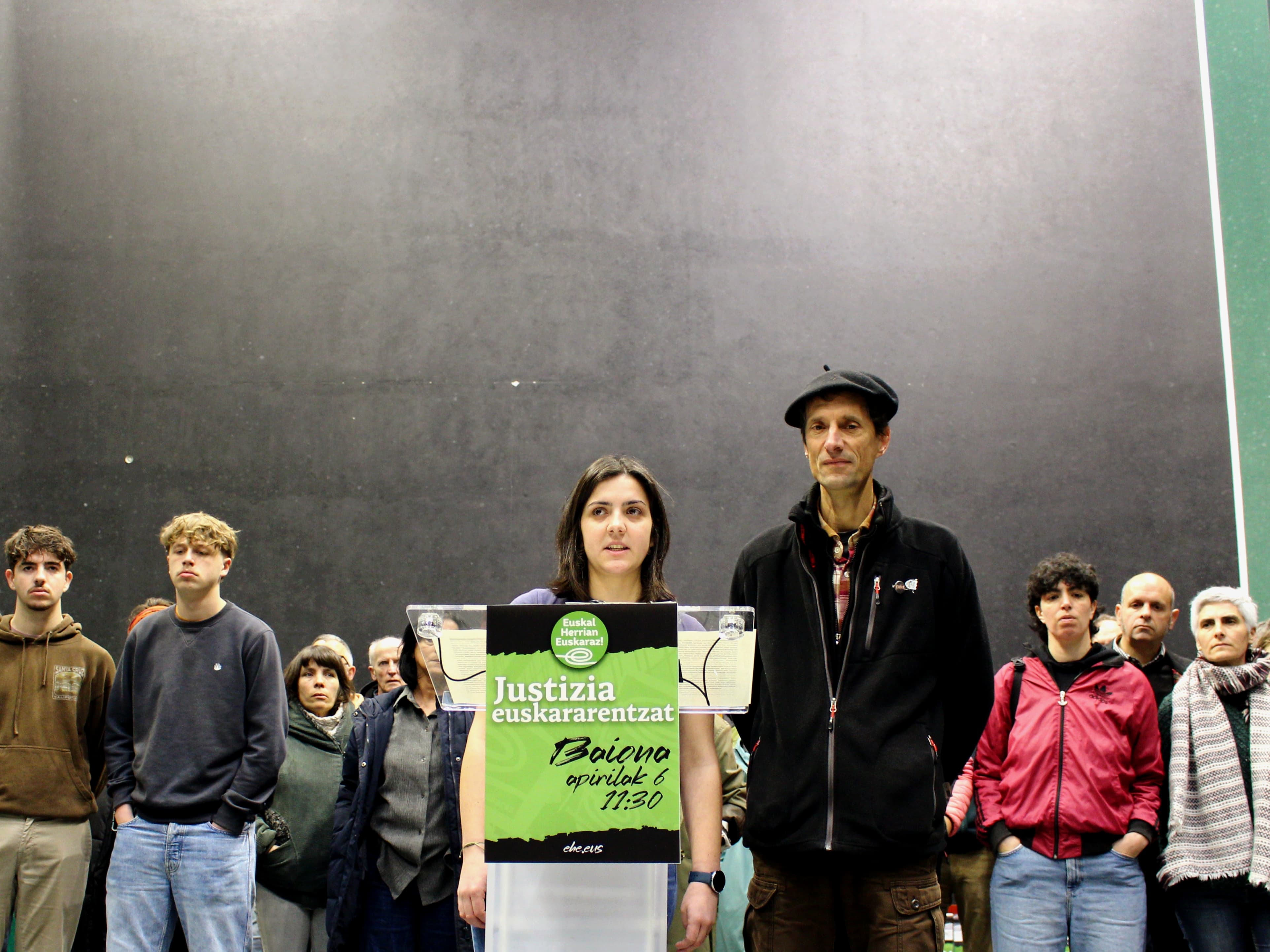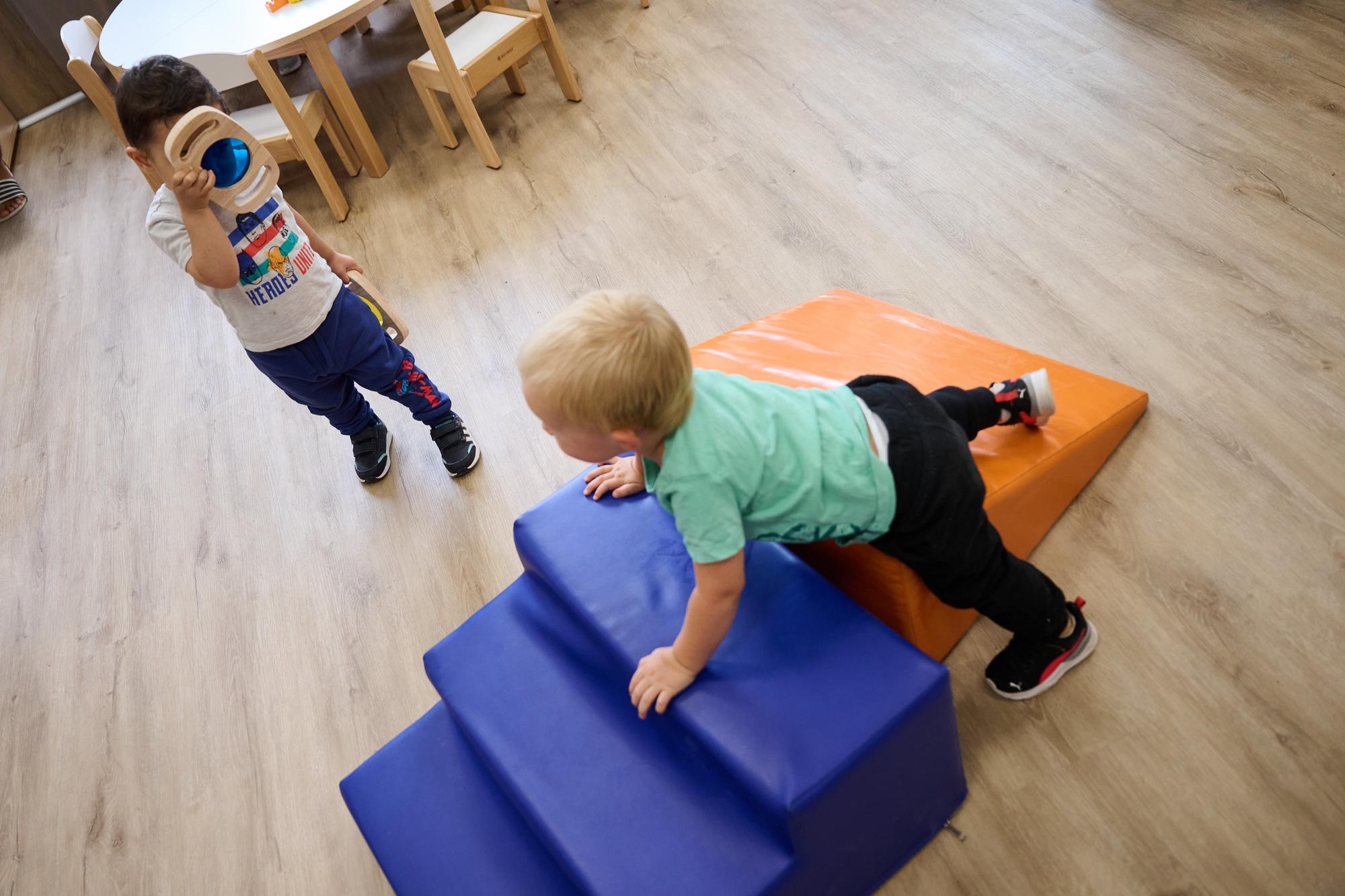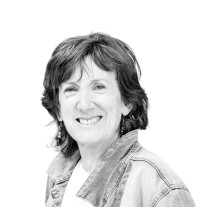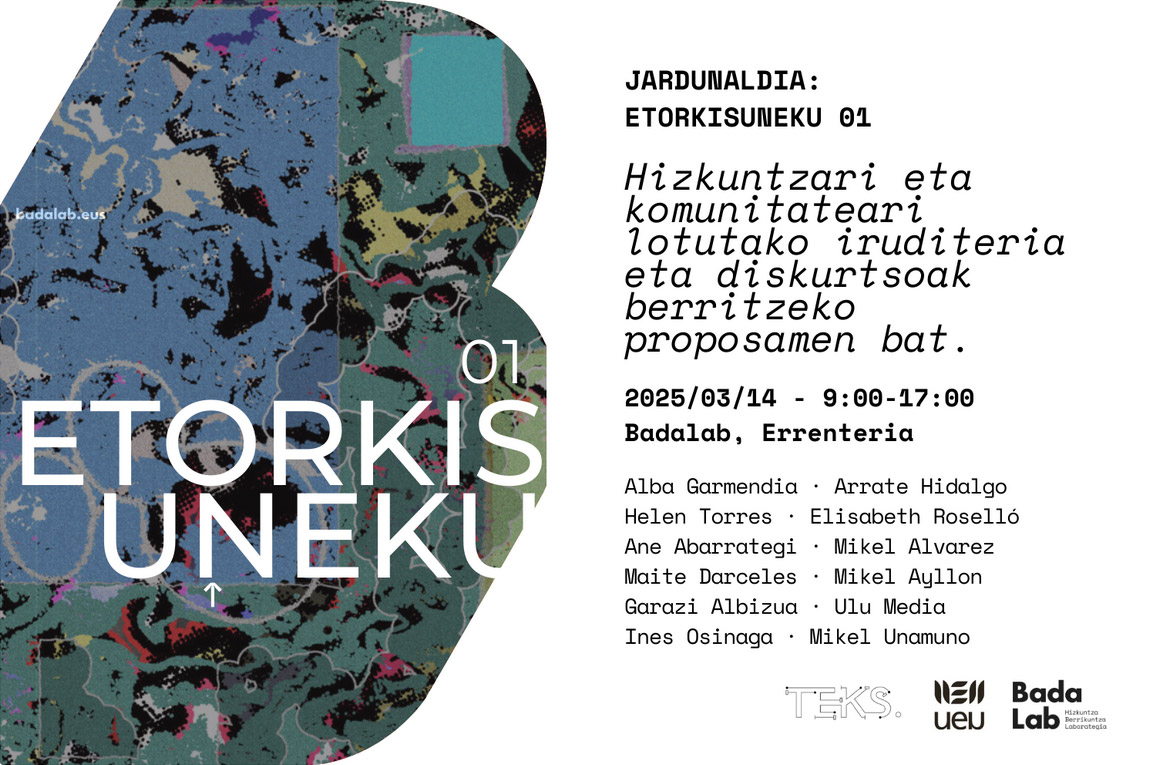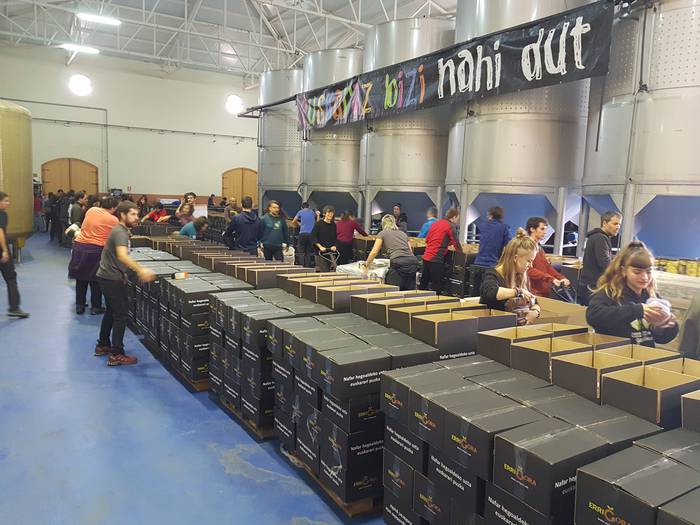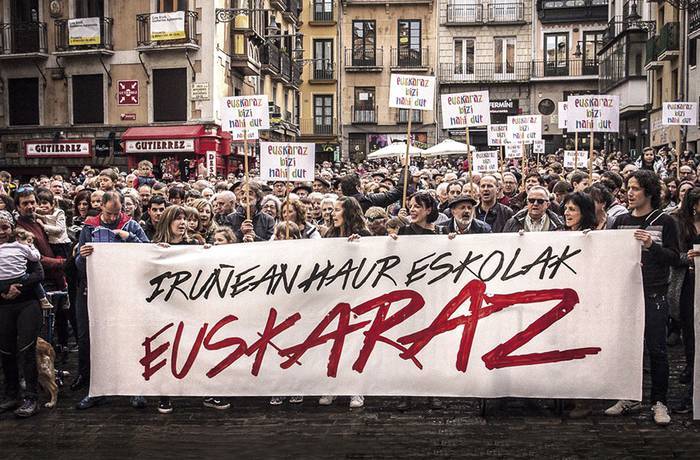Maintain or overcome linguistic models
- As you know, in the educational centers of the Autonomous Community of the Basque Country you can choose between models A, B and D. Representatives of the PNV, EH-Bildu and the PSE have referred to the language policy to be implemented in schools in the days that the City of Donostia-San Sebastián recently held in the Basque Parliament.
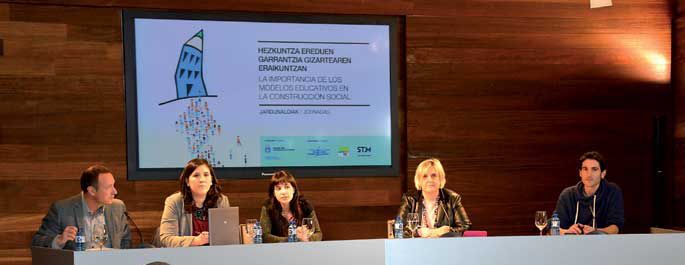
The Basque Government has prepared the curricular decrees that from now on structure the educational system of the CAV, within the Heziberri Plan. In the initial draft, there was an attempt to respond to the demand that the agents and the School Council of the Basque Country have been calling for for a long time: the need to overcome a model-based system. In short, studies indicate that models A (mainly Spanish) and B (some subjects in Spanish and others in Basque) do not euskaldunizan. That first draft of the government proposed a multilingual system centered on Euskera for educational centers, “guaranteeing the regular and normalized use of Euskera, both in internal and external activities and in school activities in general”, he noted. Involving the entire school, it was proposed to give a comprehensive treatment to the Basque country and, based on these criteria, each educational center proposed to carry out its own linguistic project.
In the final document, the Basque Government has finally chosen to maintain models A, B and D, and has added a questionable variable: the profile of Euskera will be based on the socio-linguistic environment of the center. Many agents have not seen it with good eyes, as they could create centers of different speed and linguistic ghettos in the knowledge of the Basque country. They consider that everyone should be required to have the same level of Euskera and that in areas with greater difficulties and needs to achieve this objective, resources should be put in place. For the Basque Government, however, it is a great achievement to agree with the Spanish Government to maintain the models, so that the LOMCE does not interfere in this matter.
In this context, the PNV parliamentarian Jone Berriozabal, the EH-Bildu Juanjo Agirrezabala parliamentarian and the PSE Education Officer María Luisa García have discussed this matter.
Do we have to ask Ataun and Oion for the same?
"It is worth highlighting the agreement reached by the Basque Government with the Government of Spain. The LOMCE could affect the importance of the Basque Country in the Basque Country, and we have reached an agreement to support our system. Of course, we are in favour of improving the Basque level both in model A and in model B and in model D; all models have room for improvement and we are ready to take the necessary measures, increase the number of hours or adapt the methodology, in order to improve the Basque level,” says Berriozabal jeltzalea. It should be noted that, despite having the same model, for example model D, it is not the same when applied in one country or another”.
“Six or seven years ago the Council in all its reports said that the framework of models must be overcome. The attempt was made in 2008-2009, by consensus of all the educational agents, but it was finally maintained. You say you have to maintain and improve models A, B and D, and I know that Ataun’s model D is not the same as Oyón’s, but from there you also have to set a general goal for everyone, to get Euskaldunes students in the school, and the model framework does not serve for that”, said Agirrezabala, member of EH-Bildu. “At least in 2009, it was said that by the time the Compulsory Secondary Education ended, students had to be prepared to exceed the B2 level in Basque. The PSOE took it out of a blow and now the Heziberri plan of the Basque Government does not specify what profile the students have to get when it comes to language.”
Berriozabal told him that Heziberri talks about the output profile, but that he does so in a generic way: “The competencies that the student should have are explained. This does not mean that a number of the European framework should be allocated to assess that capacity, the output profile is much more general: having linguistic ability in several languages.” Garcia, from the PSE, added that B2 is not a framework for the education system, but an indicator used to assess the level of foreign languages, and considered that “putting an exit profile has many risks, because, as you said, Oion and Ataun are not the same, and therefore, do we have to demand the same, with totally different starting points? The mother tongue of most of our students is not the Basque language, and this socio-linguistic space must be taken into account not only to use different methodologies in the classroom, but also so that the centers can work flexibly within this reality”.
The only model, like in Catalonia?
For the representative of the PNV, the system of models is based on a broad social and political consensus that must be maintained "until there is anything better, that is legal and that guarantees the security of the Basque Country. If we change it, there should be four minimum requirements: that the new framework ensure better results, that it is acceptable in our legislation, that it is feasible from all points of view, and that the majority of citizens understand and want it. We insist that we have to advance multilingualism, focusing on the Basque country, but I do not think it can be said that the model system has touched up, because another system, one and one, is not going to bring us anything good.” And ask the EH-Bildu parliamentarian: “You have to overcome the framework of the models: What is the overcoming of the framework, a unique model for all peoples? A unique model for all students? If we talk about that, we do not agree and it is not possible, because the legislation we have given ourselves does not allow it.” According to the Law of the Vascuence (1982), the right of families to choose the language must be guaranteed, and the official languages are two in the CAV.
Before answering Agirrezabala, the PSE representative spoke: “the models are important, arguing that they are an important element of stability and cohesion in society, and if moved from there, it would take phases of experimentation and evaluation, “based on evidence and scientific rigor”, to ensure that it is a better model. “At the same time, I think we are not back in 1982, that society has changed a lot and that parents ask for other things from the education system. To respond to them is our duty, always from the agreement”. She reminded Isabel Celaá, who was an Education Counselor (PSE), of the three-page model that was carried out experimentally: this model established the minimum and maximum of teaching hours in Basque, Spanish and English and was criticized for the suppression of the Basque school hours, which should focus on the good of other languages. In García’s words, “the evaluation of this model was very good; in the centers that tested it, the knowledge of English was increased and the Basque language was not harmed”.
“He says that the trilingual model yielded good results in English and that it did not harm the Basque Country, but it did not improve,” said EH-Bildu’s politician, who believes that it is not the right framework for euskaldunizar the students. He also answers the jeltzale question: “The only model is not possible, but Catalonia has a model of immersion [equivalent to our model D, most of the subjects in Basque we, in Catalan], it only has that model, the only one, and the world has not fallen.” Agirrezabala stresses that this is the right time to move towards a new framework in which the Basque country has a greater presence: “The 2009 bill established 60% of the school hours for the Basque Country, for a very simple reason: in general, 60% guarantees a very good language proficiency. And it can be done, because it is said from word of mouth that the current model system has a solid political and social basis, but this system derives from the Basque Law passed in 1982, and how many voted the law in Parliament? 39 of the 75 MPs. If at the moment, adding PNV and EH-Bildu, we agreed that the Basque country should be the axis of education, we would have a consensus of 48 out of 75, more than then. And the educational agents also agree! Why is it not done then? What are we afraid of? Always with the objective of improving the linguistic competence of the students”.
Ez dira gutxi azken boladan euskara bere onenean ez dagoela eta bere transmisioa bermatuta ez dagoela ohartarazten ari diren ahotsak. Bestetik, inork ez du ukatzen hezkuntzak ezinbesteko betebeharra duenik euskara eta euskal kulturaren biziraupenerako. Erronka estrategikoa... [+]
Azken asteetan zenbait unibertsitatetako ate irekien jardunaldietara joateko aukera izan dut. Semea aztertzen ari da zer ikasiko duen datozen urteotan eta, erabakia hartu aurretik, komeni da aukera guztiak begiratzea. Unibertsitate bakoitzak badu bere misioa, bere izaera, bere... [+]
Ba al dakizue frantses batzuk harritu egiten direla mugaren alde honetan ere euskaldunak bagaudela jakitean? Ba bai, harrigarria bada ere, behin, Donostian, frantses batzuei entzun nien sinetsi ezinik beren buruari galdetzen: “Saint-Sébastien est au Pays... [+]
Gasteizko 1 zenbakiko Auzitegi Kontentzioso-Administratiboak emandako epaia berretsi du EAEko Justizia Auzitegi Nagusiak. Lan poltsan parte hartzeko euskara maila altuenaren baliokide diren 3. eta 4. eskakizunak indargabetu zituen Gasteizko Auzitegiak.
25 bat eragilek adierazi diete elkartasuna apirilaren 11n Baionako auzitegian epaituko dituzten Intza Gurrutxaga eta Gorka Torre Euskal Herrian Euskaraz taldeko kideei. Egun batzuk lehenago, apirilaren 6an Baionan eginen den manifestazioan parte hartzeko deia ere luzatu dute.
Iruñeko haur eskoletako zuzendariek, EH Bildu, Geroa Bai, Zurekin Nafarroa eta PSNren arteko akordioa kritikatu dute. “Murgiltze ereduaren alde egin dugu beti, baina inoiz ez da gure iritzia kontutan hartzen” salatu du Euskalerria Irratian, Garikoitz Torregrosa... [+]
Eskolako zenbait gurasok euskalduntzeko egindako ahalegina ikusarazi, eta hezkuntza komunitatean euskararen aldeko jarrerak piztu. Helburu horiekin bultzatu du Autobiografia Linguistikoak ekimena Ramon Bajo ikastetxeko Basartea gurasoen elkarteak, Gasteizko Alde Zaharrean. Pozik... [+]
Harrera-herri euskaldun nola izan gaitezkeen galdetu zion Leire Amenabarrek bere buruari eta parean zituenei iaz, Gasteizen, harrera-hizkuntzari buruzko jardunaldietan, eta galdera horrexetan sakontzeko elkartu gara berarekin hilabete batzuk geroago. Amenabarrek argi du... [+]
Lagun asko sumatu dut kezkatuta euskaldun gero eta gutxiagok ahoskatzen duelako elle-a. Haur eta gazte gehienek bezala, heldu askok ere galdu du hots hori ahoskatzeko gaitasuna, idatzian ere nahasteraino. Paretan itsatsitako kartel batean irakurri berri dugu: altxorraren biya... [+]
Azterketak amaitzearekin batera ohikoak bihurtu dira ikasleriaren artean, urteko garai honetan merkeak diren hegaldiak hartu eta adiskideekin bidaiatzea. Horrela egin dut neuk ere eta Londresera joateko aukera izan dut. Ildo beretik, bertan “euskaldun” pilarekin egin... [+]
"No entiendo, en castellano por favor" eta gisakoak ohikoak dira eskolako guraso Whatsapp taldeetan, baina Irungo Txingudi ikastola publikoan euskara hutsean aritzeko modu erraz eta eraginkorra dute, behar duenarentzat itzulpen sistema berehalakoa ahalbidetuta.
Etorkisuneku 01 izenarekin jardunaldia egingo da martxoaren 14an, datorren ostiralean, Errenterian. Badalabek eta TEKS elkarteak antolatuta "hizkuntzari eta komunitateari lotutako iruditeria eta diskurtsoak berritzeko proposamen bat" izango omen da. Badalaben egoitzan... [+]
Martxoaren 10etik 26ra izango da udaberriko kanpaina. 'Beste modura, denona de onura' lelopean arituko dira gertuko ekoizpena, banaketa eta kontsumoa babestu eta sustatzeko, ager zonaldean euskara hauspotzen duten bitartean. Apirila amaieratik aurrera jasoko dira... [+]
Alberto Martinez Eusko Jaurlaritzako Osasun sailburuak argi dio: ez ditu mediku euskaldunak aurkitzen, eta euskarazko osasun arreta ezin da bermatu mediku egoiliar (formazioan dauden espezialista) gehienak kanpotarrak direlako. Mediku euskaldunak bilatzea perretxikotan joatea... [+]
Euskarazko eskaintza handitzeko akordioa erdietsi dute EH Bilduk, PSNk, Geroa Baik eta Zurekin Nafarroak









